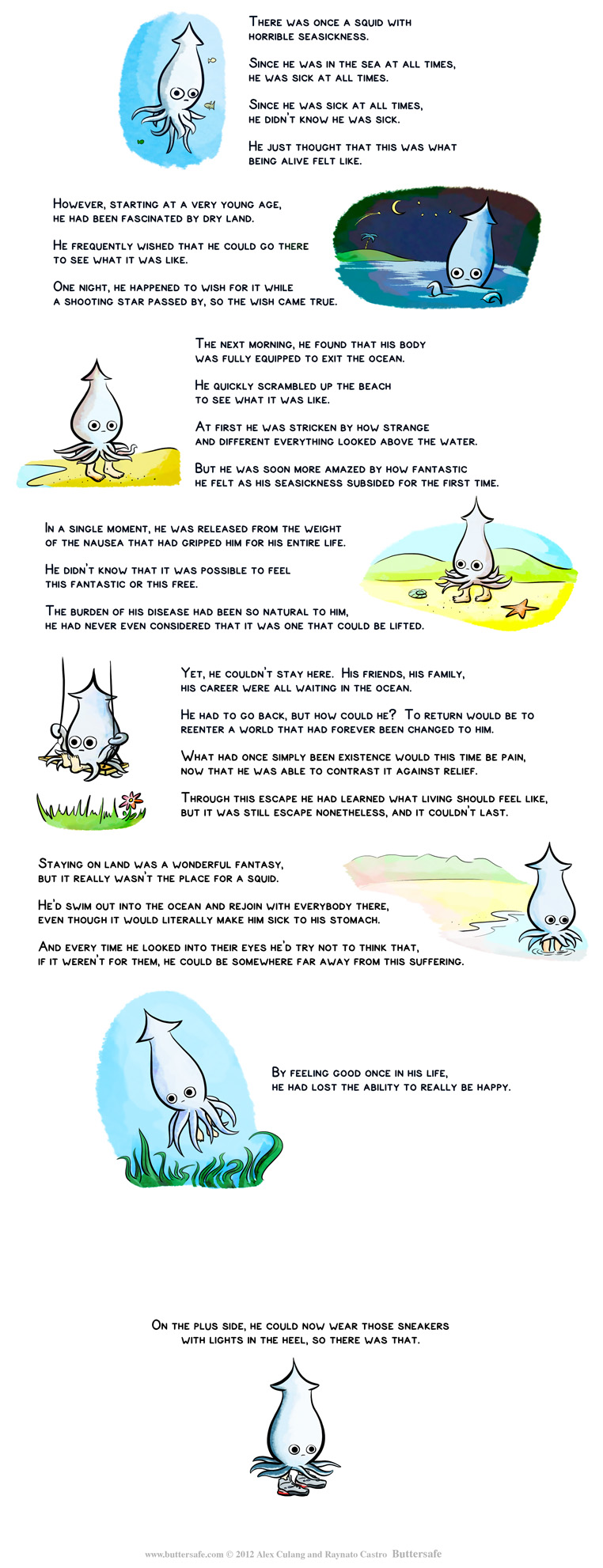
by Alex Culang and Raynato Castro at Buttersafe, h/t to Squid.us
Don't get too sad though, because this tale is completely implausible. Even for humans, who are adapted to living on land, seasickness is generally restricted to the surface of the sea and goes away upon submergence (I can vouch for the relief of actually diving after suiting up on a rocky boat). Depending on species, most squid spend little to no time at the water's surface, so even a squid prone to seasickness would not actually suffer the effects of this malady very often.
Humboldt squid are one exception, as they are often seen feeding at the surface at night. If some poor Humboldt squid were feeling sick, one has to wonder whether flying out of the water would provide some relief?
In all seriousness, while motion sickness has been studied in numerous non-humans, from the obvious choice of dogs to the more peculiar selection of tree frogs, it's never been reported from an aquatic animal.
Seasickness, and motion sickness in general, are still rather mysterious from a scientific point of view. To find out what we do know, see Cameron Walker's great post Topsy-Turvy over at The Last Word on Nothing as well as my Cephalopodiatrist post from a few years ago, Vomitiously Ill.



Comments